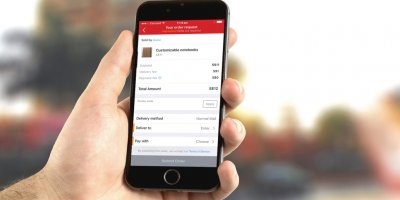
Chatbots is the first step to embracing a mobile first future for banks. Source: Shutterstock
Chatbots to pave the way for a mobile banking future
BANKS have been rolling out chatbots, which allow users to bank without interacting with a human.
Banking giant Citi is joining the mix, planning to launch its own chatbot in Hong Kong, except it’s on (Facebook) Messenger.
This makes sense for Citi. As reported by the South China Morning Post, Facebook has over five million users in Hong Kong. By rolling out the chatbot on a commonly used platform, Citi is going where its users are.
Citi’s chatbot understands natural language processing to answer queries from customers. According to SCMP quoting Juniper Research, chatbots can save global banks more than US$8 billion per year by 2022.
The chatbot was part of the bank’s effort to stay relevant and competitive in the sea of digital services available by fintechs and virtual banks.
Citi was recorded to have spent around 20 percent of the bank’s operating expenses on technology, which translates to about US$8 billion.
Globally, Citi is not the first one to rollout chatbots on Messenger. Wells Fargo in the US, Eastern Bank in Bangladesh, Bank of Montreal in Canada, and HDFC bank in India have chatbots on Messenger.
In fact, Citi Singapore has already rolled out Citibot on Messenger in Singapore earlier this year. The bot allows users to access financial records and potentially conduct transactions in the future.
Having said that, an overwhelming majority of the banks opt to rollout chatbots on their own website or mobile banking apps. Amongst them are Bank of America’s Erica, HSBC Hong Kong’s Amy, SEB’s Aida (Sweden), Commonwealth Bank’s Ceba (Australia), CIMB’s EVA (Malaysia), just to name a few.
Speaking with SCMP, Citi’s Head of Digital Banking Priscilla Ng said chatbot is just the first step towards embracing a mobile-first strategy.
Beyond chatbots, Citi is opening up its API to allow third-party developers to create fintech solutions and services using bank data. So far, Citi has partnered with Hong Kong consumer brands including to speed up online shopping and banking transactions.
Ng predicted that cashless payments will take off in Hong Kong by 2019.
She attributed the slow growth to the widespread dominance of Octopus cards, which has been substituting cash for over two decades.,
“Because Octopus is so convenient and widely adopted, and there are ATMs everywhere in Hong Kong, people have no urgency to take up mobile payments,” said Ng. “I believe QR will be one of the most popular payment methods in Hong Kong when it is standardized.”
To accelerate mobile payment efforts, Hong Kong Monetary Authority (HKMA) has launched a few “smart banking” initiatives, including faster payments, promoting Open API, and revamping its fintech supervisory sandbox.
READ MORE
- Ethical AI: The renewed importance of safeguarding data and customer privacy in Generative AI applications
- How Japan balances AI-driven opportunities with cybersecurity needs
- Deploying SASE: Benchmarking your approach
- Insurance everywhere all at once: the digital transformation of the APAC insurance industry
- Google parent Alphabet eyes HubSpot: A potential acquisition shaping the future of CRM




